Working out fuel economy and emissions rules: Federal officials met last month with California Air Resources Board members to work out differences in fuel economy 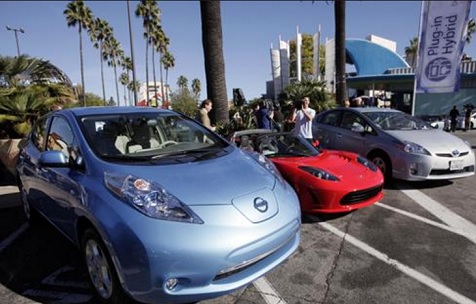 and emissions standards. On Dec. 15, William Wehrum, head of the Environmental Protection Agency’s Office of Air and Radiation, National Highway Traffic Safety Administration deputy chief Heidi King, and Mike Catanzaro, a senior White House aide, discussed goals with CARB officials on maintaining one set of national requirements for automakers in the cars they sell, according to Automotive News. Automakers have been asking the Trump administration to be lenient on fuel economy standards based on the realities of new vehicles being sold with gasoline prices staying low and consumers being more interested in trucks and SUVs. California has taken a more independent, stringent tactic on its zero emissions rules. “We’ve had productive conversations under way with CARB and I would hope those conversations continue to be productive,” Wehrum said. “I think a shared goal is to maintain one national program.”
and emissions standards. On Dec. 15, William Wehrum, head of the Environmental Protection Agency’s Office of Air and Radiation, National Highway Traffic Safety Administration deputy chief Heidi King, and Mike Catanzaro, a senior White House aide, discussed goals with CARB officials on maintaining one set of national requirements for automakers in the cars they sell, according to Automotive News. Automakers have been asking the Trump administration to be lenient on fuel economy standards based on the realities of new vehicles being sold with gasoline prices staying low and consumers being more interested in trucks and SUVs. California has taken a more independent, stringent tactic on its zero emissions rules. “We’ve had productive conversations under way with CARB and I would hope those conversations continue to be productive,” Wehrum said. “I think a shared goal is to maintain one national program.”
AeroVironment’s TurboDX chargers: AeroVironment introduced TurboDX, the company’s next-generation EV charging station for commercial, workplace, utility and residential customers around the world, during CES 2018 in Las Vegas. TurboDX includes 120 and 240 volt charging in a durable, reliable, fast, and safe solution adaptable to a wide range of users’ needs. It’s been certified by Underwriters Laboratory to North American UL Standards for safety and reliability. European variants are certified to IEC standards and bear the CE Mark. Chinese configurations have met CQC certification. An OEM-branded version of the TurboDX has begun manufacturing in China and will ship to customers starting this month.
Hydrogen stations in Japan: A consortium of 11 companies have signed an agreement to scale up deployment of hydrogen stations and fuel cell vehicles in Japan. A new company will be started up in the spring of 2018 to develop refueling stations. The list includes Toyota, Nissan, Honda, financial institutions, and oil and energy companies including Air Liquide Japan. One of the targets will be to have 160 stations in place fueling 40,000 fuel cell vehicles by 2020.
Ford testing self-driving deliveries with Postmates: During CES 2018 in Las Vegas, For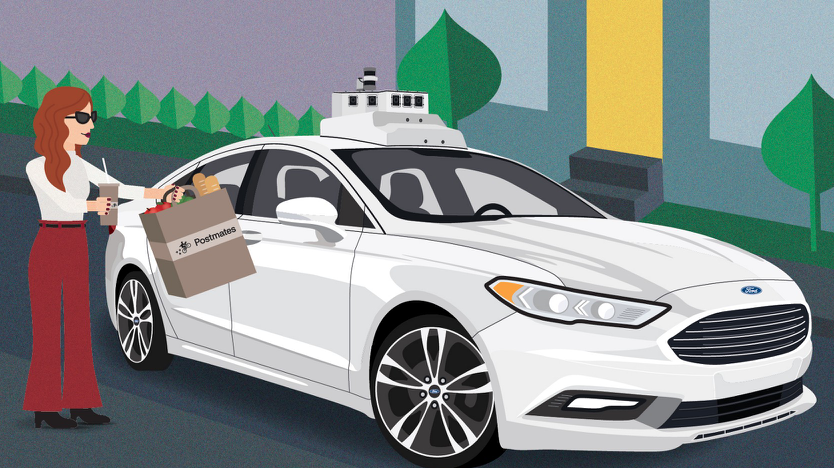 d Motor Co. announced a test project being conducted with the Postmates delivery service. City dwellers and workers can tap into the convenience of having deliveries made through a quick and easy process on their mobile device. It will support future efforts to deliver meals and store purchases to consumers though self-driving vehicles. Both the merchants and the consumers’ experiences will be explored during the test project.
d Motor Co. announced a test project being conducted with the Postmates delivery service. City dwellers and workers can tap into the convenience of having deliveries made through a quick and easy process on their mobile device. It will support future efforts to deliver meals and store purchases to consumers though self-driving vehicles. Both the merchants and the consumers’ experiences will be explored during the test project.
In late August, Ford began placing a self-driving test car through a trial project with Domino’s Pizza. Domino’s Pizza employees carried out pizzas for delivery in a Ford Fusion Hybrid Autonomous Research Vehicle in an Ann Arbor, Mich., test project. Users were able to track the delivery through Domino’s Tracker mobile app.
Ford safety engineers and a few other researchers went on these delivery rounds to make sure it was being carried out safely and accurately. Consumer opinions about the Domino’s ordering and delivery experience were also tapped into.
Postmates is distinct in the market for delivering just about anything – fast food, restaurant meals, groceries, and hardware store items. Much larger companies, such as Amazon, and exploring deliveries and forging their own alliances in all these areas.
Last year, Uber created an alliance with McDonald’s to bring Happy Meals and other menu offerings to those who order it. Automakers see huge potential in forging alliances with technology companies and mobility services like Lyft. Consumers and employers are showing high demand for specialized mobility services that remain fast, efficient, and affordable. It’s much better than being stuck in traffic and looking endlessly for a place to park.

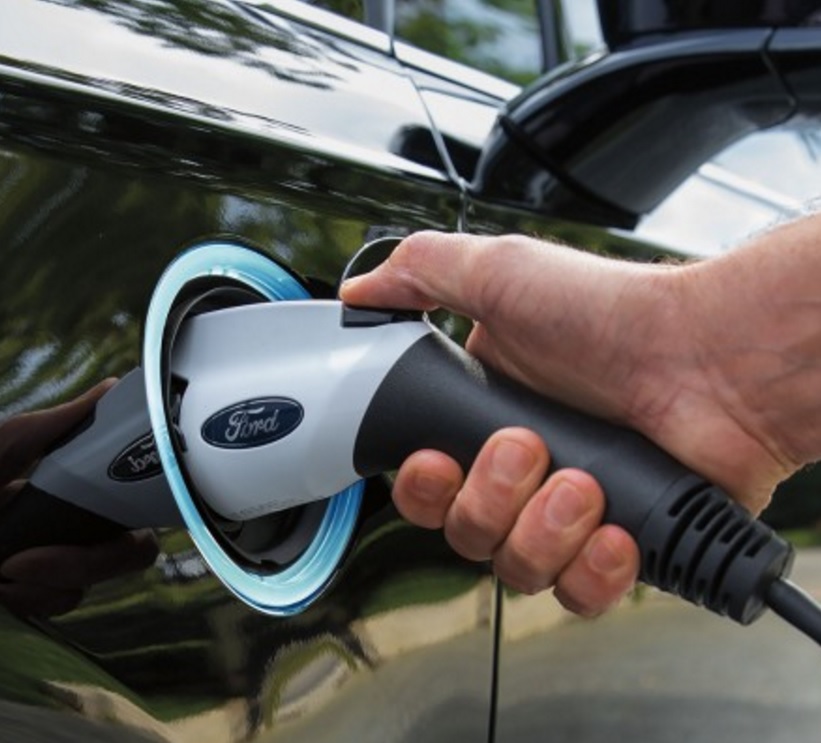 with 50 new Ford and Lincoln models going to that market by 2025. There will be at last 15 new electric vehicles under these brands, and the separate Zotye-Ford joint venture will offer a range of affordable all-electric vehicles under a new brand. Sport utility vehicles will be emphasized, with eight new utility vehicles being rolled out under the 50-vehicle launch. Connectivity will play a greater role, with all Ford and Lincoln vehicles in China connected through either embedded modems or plug-in devices by the end of 2019. As for autonomous vehicles, Ford will tap into its board member presence of Chinese company Baidu’s Project Apollo. The Apollo Open Platform will facilitate the development, testing, and deployment of autonomous vehicles, the company said………… Electric bus manufacturer Proterra announced yesterday that Yosemite National Park will add two Proterra Catalyst buses to its fleet. It will be the first U.S. National Park to permanently add zero-emission buses to its shuttle fleet, offering its visitors a modern, ecologically-friendly transportation option, Proterra said. Beginning service in late 2018, the Catalyst buses are expected annually to reduce 887,000 lbs. of greenhouse gas emissions and save approximately $150,500 on maintenance and operating costs for the national park………… Volkswagen AG’s Moia mobility service division yesterday
with 50 new Ford and Lincoln models going to that market by 2025. There will be at last 15 new electric vehicles under these brands, and the separate Zotye-Ford joint venture will offer a range of affordable all-electric vehicles under a new brand. Sport utility vehicles will be emphasized, with eight new utility vehicles being rolled out under the 50-vehicle launch. Connectivity will play a greater role, with all Ford and Lincoln vehicles in China connected through either embedded modems or plug-in devices by the end of 2019. As for autonomous vehicles, Ford will tap into its board member presence of Chinese company Baidu’s Project Apollo. The Apollo Open Platform will facilitate the development, testing, and deployment of autonomous vehicles, the company said………… Electric bus manufacturer Proterra announced yesterday that Yosemite National Park will add two Proterra Catalyst buses to its fleet. It will be the first U.S. National Park to permanently add zero-emission buses to its shuttle fleet, offering its visitors a modern, ecologically-friendly transportation option, Proterra said. Beginning service in late 2018, the Catalyst buses are expected annually to reduce 887,000 lbs. of greenhouse gas emissions and save approximately $150,500 on maintenance and operating costs for the national park………… Volkswagen AG’s Moia mobility service division yesterday 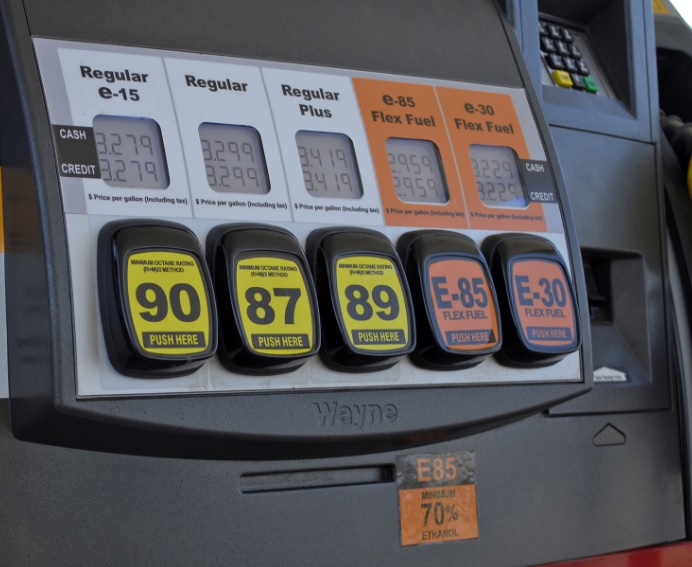 Thursday on the
Thursday on the 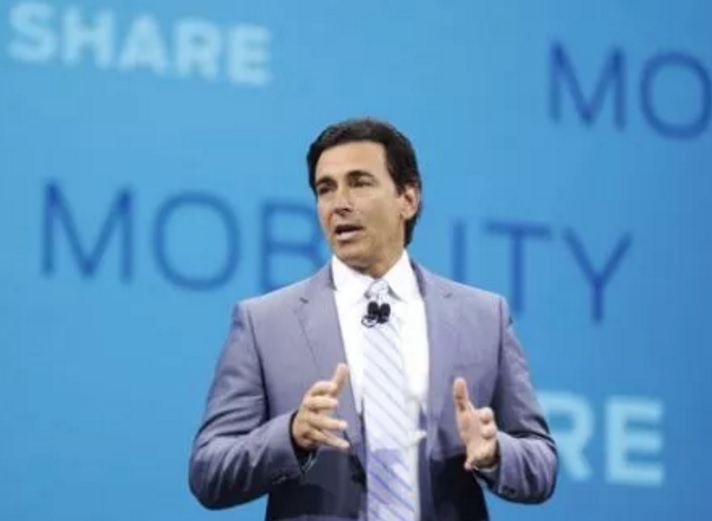 Ford changes over CEO: Ford’s Mark Field is
Ford changes over CEO: Ford’s Mark Field is